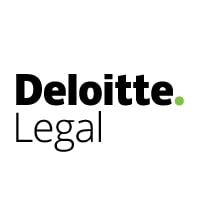

Chief legal officer | Tenova Group



Giorgio Melega
Chief legal officer | Tenova Group
Team size: 12
How do you approach managing legal aspects during periods of instability or crises, and how does your legal strategy align with the broader business strategy to ensure the organisation’s resilience?
I believe that during periods of instability or crises, the most effective management practices can be drawn from military tactics and guidelines. It is essential to develop, implement, and regularly update a comprehensive crisis management plan that includes risk assessment, contingency plans, and clearly defined roles and responsibilities. Strong and decisive leadership is vital to provide clear direction and make timely decisions, while adaptability and the ability to make informed, quick choices are crucial.
Transparent communication and employee support also play a significant role. Maintaining open, honest, and frequent communication with employees, stakeholders, and customers helps build trust and ensures that everyone is informed about the situation and the company’s responses. Prioritising the well-being and support of team members is important for strengthening relationships, as ensuring employee morale and engagement is vital.
In my view, one of the best tools for ensuring that legal strategy aligns with broader business strategy is the use of Objectives and Key Results (OKRs). This approach typically involves establishing high-level, ambitious goals that reflect the overall business strategy, creating measurable and time-bound key results for each objective, and involving other departments to foster collaboration. Aligning performance evaluations and incentives with these achievements reinforces the importance of strategic alignment.
How have you integrated technology into your legal processes, and what impact has this had on efficiency and compliance?
From the 1980s to the 2020s, the roles of in-house legal teams have transitioned from primarily being buyers of legal services to managers, and more recently, to strategic partners. With this evolution, the expectation for corporate legal departments has expanded significantly. They are now required not only to achieve efficiency as buyers but also to ensure effectiveness as managers, and to guarantee that corporate practices align with ethics and compliance within the ESG framework as strategic partners.
In this context, technology-integrated solutions play a crucial role in enhancing efficiency, particularly through AI assistance in various tasks. This approach significantly reduces manual workload, allowing legal teams to concentrate on more creative and strategic activities. Furthermore, it minimises human error, enhancing compliance and ensuring consistent adherence to regulatory requirements. Examples of such tasks include contract and document drafting, NDA reviews, and compliance monitoring.
When it comes to improving effectiveness, the focus shifts to centralised legal management systems. These corporate platforms consolidate all legal activities, documents, and communications, which in turn improves accessibility and fosters collaboration across different legal functions and geographical locations.
Finally, in terms of ethics, the integration of data analytics tools is essential, provided all information is transparent and trackable within corporate platforms. These tools offer data-driven insights that inform risk management strategies, helping to predict potential compliance issues and address them before they escalate.
chief legal officer | Tenova
Chief legal officer | Tenova
chief legal officer | Tenova
‘Be clear, be timely, be practical’, Giorgio Melega states this is the mission of his legal department. Taking charge of a worldwide function of 12 employees, Melega has been chief...